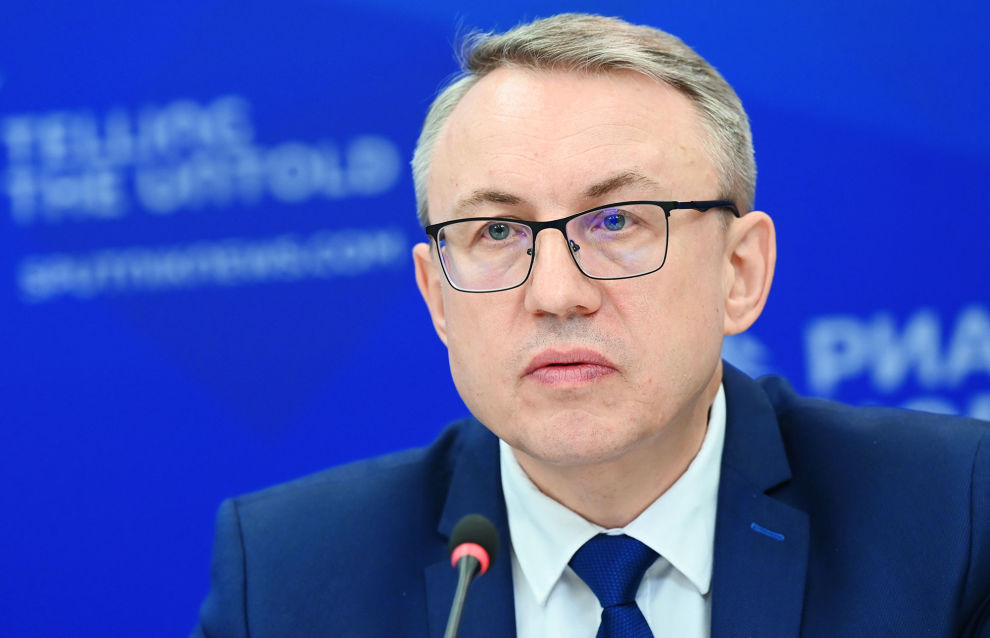Nikolai Korchunov: Arctic Council to prioritize regional residents’ needs during Russian chairmanship
Question: What aspects will Russia prioritize during its chairmanship of the Arctic Council?
Nikolai Korchunov: First of all, we want to bring the Arctic Council closer to the expectations and needs of specific people, namely, the Arctic’s population. Rather than transforming it, we don’t want it to become an elite club for representatives of governments and narrow experts on various matters alone. We will make sure that various matters being reviewed by the organization will be seen as important by the Arctic’s population and indigenous ethnic groups.
This is why we advocate the subject of sustainable development, and this is also why we hope that we will be able to support traditional activities of indigenous ethnic groups and their lifestyle during Russia’s chairmanship. We consider this to be a highly important job.
We will also support projects in the field of education, including academic mobility, and we will support contacts between young people of Arctic states in the most diverse areas, including those between young members of indigenous ethnic groups.
The chair’s primary task is to ensure the responsible implementation of functions while promoting and reviewing previously agreed items on the agenda. All of them should be developed, one way or another, during Russia’s chairmanship.
Question: During its chairmanship of the Arctic Council, will Russia proceed from its national priorities or will it focus on the interests of all the Arctic Council countries?
Nikolai Korchunov: The chairs of the Arctic Council’s should address common tasks, and not just those of the Russian Arctic. While dealing with these, we will, naturally, accomplish those on our national agenda. I can assure you that all the planned work proceeds from the Russian Arctic’s domestic needs as well as its requirements.
Question: How do sanctions affect Russia’s work in the Arctic Council?
Nikolai Korchunov: Sanctions do not directly affect our work, but, of course, they exert an indirect impact.
In 2014, our Arctic Council partners decided to stop financing various projects by the European Bank of Reconstruction and Development. Of course, we had trouble borrowing loans for implementing important and significant projects in the field of sustainable development, including those facilitating the development of the Russian Arctic.
Of course, these decisions impair our production modernization efforts, those aiming to upgrade energy and power-generating enterprises, in the field of minerals extraction projects, as well as production of essential materials which are crucial for energy transition. We draw the attention of our partners to this fact.
Nevertheless, the Arctic Council has another agenda where we can jointly work on matters not covered by various anti-Russia sanctions and restrictions.
Question: Will the Council’s agenda include expanded Arctic navigation?
Nikolai Korchunov: Today, Russia, as well as other Arctic Council countries, finds it extremely important to promote the Arctic navigation agenda because this agenda is currently under pressure, and primarily from the environmentalist organizations.
In 2018, Ocean Conservancy, an NGO with its headquarters in the US, launched a campaign opposing Arctic navigation. A number of major container haulers, as well as consumer goods manufacturers, namely, companies making brand clothing for the European market, joined the campaign. As a rule, this clothing is manufactured in Asian countries and delivered to Europe.
Question: Does work in this direction also help develop the Northern Sea Route?
Nikolai Korchunov: Yes, we find it highly important to work with our partners and to jointly expand the Arctic navigation system as a single whole. Work on this task will help promote the Northern Sea Route as part of the Arctic navigation system. This is why we also initiated a project to develop a sustainable Arctic navigation system. In effect, this implies sustainable navigation that does not impact the ecology and Nature.
We will consistently promote this project, and we will also promote various tasks, stipulated by the relevant decisions to develop the Northern Sea Route, within its framework.
Question: You have noted that many environmentalist organizations oppose navigation in the Arctic. Is this pressure justified?
Nikolai Korchunov: It is hard to say. One should provide scientific data showing whether this pressure is justified.
As compared to the Northern Sea Route, an additional seven to ten days are needed to deliver an Asian consignment to Europe via the Suez Canal. Consequently, ships navigating the Northern Sea Route would generate fewer toxic emissions, and the anthropogenic impact would be reduced.
Regarding ecology or biodiversity, this problem exists everywhere, including the Pacific Ocean, the Indian Ocean and the Arctic. In the first place, we should address it in the context of global risks and use the relevant scientific data.
